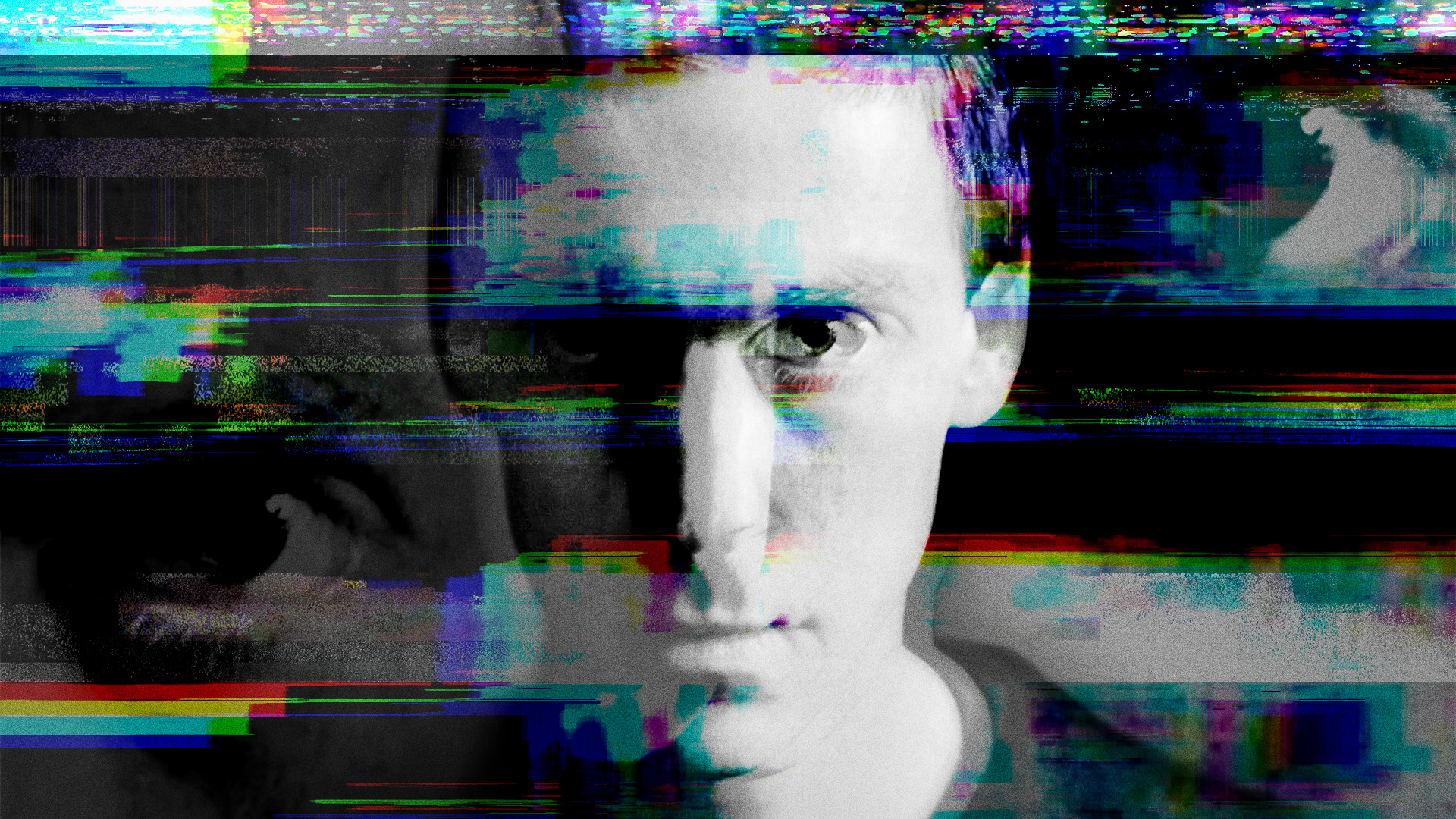“Nothing human makes it out of the near-future”: so wrote the English philosopher Nick Land in 1994 of the coming technological revolution. When most were still getting to grips with the World Wide Web, Land and his comrades at Warwick University’s Cybernetic Culture Research Unit (CCRU) were already compelled by the potential of artificial intelligence to disrupt, transform and perhaps destroy the world.
Rejecting the orthodox view in the mid-1990s that the internet was simply a remarkable new information and communication network, a conveyor belt of gadgets and technical processes, Land, his co-founder Sadie Plant, Kodwo Eshun, Stephen Metcalf, the late Mark Fisher and others embraced “accelerationism”: the principle that cybernetic technology was evolving at an unstoppable pace and that humanity should lean in to both the speed and scale of the change.
They were obsessed by Apocalypse Now (1979), Blade Runner (1982) and The Terminator (1984); by the industrial music of Genesis P-Orridge and his “Temple ov Psychick Youth”; by William Gibson’s cyberpunk fiction, especially Neuromancer (1984); by William S Burroughs and HP Lovecraft; by alphanumeric codes; by jungle music, drum-and-bass and raves; and by drugs (mostly dope and amphetamines).
Three decades on, Land, now aged 63, is more influential than ever. Marc Andreessen, the billionaire tech investor who played a senior role in Donald Trump’s transition team at Mar-a-Lago, has hailed him as one of the “patron saints” of his own “techno-optimism” (though Land would firmly deny that he is an optimist).
In October, he took part in a much-anticipated debate with the far right Russian philosopher Aleksandr Dugin, who has been nicknamed “Putin’s Rasputin” and has collaborated closely with Trump’s former chief strategist, Steve Bannon. In Land’s words, he and Dugin share a contempt for modern liberalism as “a globalist, universalist, moralistic monster”.
In the same month, Land’s ideas were unexpectedly turbo-charged when the occult researcher Conrad Flynn appeared on Tucker Carlson’s show, one of the most popular podcasts in the world, and spent much of their conversation discussing the significance of the philosopher – “huge in Silicon Valley” – and his debt to Aleister Crowley (who identified himself as the “Beast” of the Apocalypse), to the Jewish mystical school of Kabbalah, and to obscure numerology.
“We are building the demons from the Book of Revelation with AI,” said Flynn to Carlson. “That’s Nick Land’s position”. In a subsequent interview with the online magazine Compact, Land said that they had missed the point, if they imagined that “I had this wacky, drug-fuelled thought that then got passed into Silicon Valley and became influential.” The direction of travel “is completely the other way. That stuff is coming back to us.”
This is why Land is so important today. His unique philosophy aligns closely with the growing fascination in the tech world with hermeticism, pagan cults, spiritualism, millenarianism and apocalyptic visions. Some have taken to shamanism; others believe that AI will lead to the Christian Rapture, when the faithful will be lifted up by the returned Jesus as a prelude to the End Times.
Like his hero John Dee, the Elizabethan court astronomer, and occultist, Land regards science and magic as two sides of the same coin. In this respect, he personifies a sharp turn in Silicon Valley away from the old Enlightenment project, from secularism and from rationalism. Every self-respecting tech bro owns a well-thumbed copy of Fanged Noumena, a 2011 collection of his writings, whose distinctive cover is illustrated by Jake and Dinos Chapman’s Disasters of War IV.
By the time of its publication, Land had parted company from his old CCRU colleagues – mostly creatures of the left and of post-Marxist theory – and was associated with the explicitly political project of “neo-reaction” or “NRx”, an intellectual precursor of the alt-right movement of Trump’s first term.
His principal accomplice now was the software developer and blogger Curtis Yarvin, then writing as “Mencius Moldbug”. They loved the declaration of the venture capitalist Peter Thiel – later to fund JD Vance’s rise to power – that “I no longer believe that freedom and democracy are compatible.”
Both Land and Yarvin expressed contempt for egalitarianism and what they called “the Cathedral”: the nexus of progressive institutions including universities, the media, non-profit organisations and deep state bureaucracies that were, in Land’s words, obstructing “acceleration into techno-commercial Singularity [the point where AI surpasses human intelligence]”.
Neither polemicist is, to put it mildly, afraid of jargon, impenetrable prose, or the provocations of the far-Right troll. Posting on X as @xenocosmography, Land makes frequent interventions, such as: “The Anglo promised land is the open western frontier, which is why things have been difficult lately”; “Hitler being autistic isn’t enough to make me like the guy. (Saying this while it’s still allowable.)”; “Planetary civilization collapses in three years unless the women question is sorted out by then. So wild that anyone is thinking about anything else”. You get the picture.
The difference is that Yarvin has welcomed the traditional limelight: profiled in the Financial Times, interviewed by the New York Times, delivering an Oakeshott lecture at Oxford University’s Sheldonian Theatre last month, and appearing on stage with TNW’s own Alastair Campbell.
In contrast, Land has cultivated the mystique of the oracle, granting occasional interviews and speaking on obscure podcasts, but shunning the grand celebrity of the techno-influencer that could easily be his. Even his precise geographical whereabouts at any one time remain a matter of online speculation.
After leaving his post at Warwick in 1998, he later moved to Shanghai and remains deeply respectful of China’s “accelerationist” brand of capitalist authoritarianism. The time difference apparent when he is interviewed on US podcasts – his features bleached by a Mephistophelean light in the darkness of his scholarly cave – suggests that he is in the far east. But the elusiveness, the intimation that he may already have been uploaded to the Matrix, is the point.
As the public debate on artificial intelligence gathers pace, Land’s ideas are increasingly consequential precisely because he has long believed that “capitalism is AI”. In the 1993 essay, Machinic Desire, he declared that “What appears to humanity as the history of capitalism is an invasion from the future by an artificial intelligent space”.
Etched into that statement is a radical and near-mystical understanding of time. He sees “retro-causality” at work, which is to say a technological version of Providence whereby AI is, in effect, communicating with its own future to forge a world in which human beings will be not so much subordinate as irrelevant.
Thirty years ago, in the essay Meat, he wrote of narratives, myths and stories acting upon us “as if a tendril of tomorrow were burrowing back”. He now says that our canon – our common culture – “is something that has already been meticulously edited by intelligences that we are yet to fully encounter.”
In this context, one of the most influential terms that Land has introduced to contemporary discourse is “hyperstition”: what he calls the “extremely sorcerous notion” that ideas, however apparently fantastical, can generate their own reality. He prefers to categorise “miracles” as “extreme improbabilities”.
Suggested Reading


Artificial intelligence and the end of capitalism
From the US computer scientist Steve Omohundro, he borrows the concept of AI’s “basic drives”, the “instrumental sub-goals” that every such technology will have. These drives, he said on the Warrior Philosopher podcast earlier this month, “include things like self-preservation – you can’t do anything unless you survive – like acquisition of resources. I think you very quickly move into these very interesting areas, like maximisation of cognitive ability.”
In other words, advanced AI will do all it can to continue existing; to seize all the resources it needs to do so; and, autonomously rather than under human direction, to seek ever greater cognitive power. Land compares these cybernetic instincts to the “will to power” explored in Thus Spoke Zarathustra by Nietzsche, who, along with Schopenhauer, remains his philosophical master.
On The NanceCast in July, he described this “intelligence optimisation drive” as “transcendental”. More particularly, he challenged head-on the idea that AI will leave human beings free to inhabit the realm of emotion, tenderness and empathy.
“The things that [large language models] seem to just do stunningly well,” he said, “is all the squishy stuff that people stereotypically have thought they would be not able to do.”
In this respect, he regards the inclination of human beings to treat ChatGPT as a therapist as only the beginning: “Meltdown, trauma, who you going to talk to?… The machine will say: ‘I understand, and I can help you’.”
It has become commonplace to claim that, in the age of AI, a greater number of people will become involved in caring. Land suggests the opposite “The demand for elderly care robots is way bigger than the sexbot thing,” he says. “There’s going to be a whole wave where robotic instalment happens because everyone wants their ‘outsane’ [mentally declining] relatives to be taken care of in a way that would [otherwise] just bankrupt everyone.”
This capacity for engagingly counterintuitive predictions exists alongside much darker ideas about, for instance, “human biodiversity”: a euphemism for racial science and the far right’s longstanding distaste for universalism and human rights.
It is not surprising that one of the founders of “neo-reaction” should condemn wokery as “an extremely hostile counter-religion”. But Land goes much further, rejecting the postwar ethical order outright, on the basis that different ethnic groups have “diversity in their average traits”.
On the basis of what he calls “race realism”, he believes that Democratic victory in the US presidential election of 2028 would be “an utter catastrophe… if you think you’ve seen mass immigration, you have not even slightly seen it.”
What is remarkable is how commonplace and uncontroversial these repellent ideas now are in the tech spaces where he operates. His amiable manner in interviews is sharply at odds with the dark implications of what he says and assumes.
This is one of many reasons why his intellectual trajectory remains important. All transformative technologies end up being controlled by oligarchies. But, even by that standard, the future of AI is being shaped by a comparatively tiny group of people – mostly men – who have absolutely no interest in traditional politics, legislatures or consultative processes, except as potential obstructions to what they are doing.
Which is why Thiel identifies a “one world state that will highly regulate and stop these technologies” as the Anti-Christ. Land refers in similar spirit to the threat of “infinite government”.
This cohort of tech radicals likes Trump to the extent that he will help them get what they want. They despise Europe as the global headquarters of pesky regulation. In the unlikely event that they have heard of Keir Starmer, they don’t care even slightly what he says or thinks about AI and “growth”.
But they do care about Land and where his thoughts are tending. As Benjamin Noys writes in his critique of accelerationism, Malign Velocities (2014), it is ironic that such a committed anti-humanist should have become such an intellectual hero: “the cult of personality that developed around him indicates the paradox of calls to dissolve the ego”.
Suggested Reading


Nick Fuentes, American Nazi
To the Tolkien obsessives who hang on Land’s every word, he is an all-seeing Sauron, an overlord of 21st-century Mordor. He is Colonel Kurtz, philosophising in his digital compound at the end of the AI river, surrounded by reverent techno-montagnards.
Tempting as it may be to dismiss Land as a far right obscurantist and provocateur merely posturing as a magus, it is a mistake not to follow his work. Yes, his prose is more fragmentary, baffling and demented than, say, JG Ballard’s; but it is often no less prophetic.
In 1994, the following must have seemed like a science-fiction fever-dream: “Government is rotted to the core with narco-capital and collapsing messily. Its recession leaves an urban warscape of communication arteries, fortifications, and free-fire zones, policed by a combination of high-intensity LAPD airmobile forces and borderline-Nazi private security organizations.”
But today, in the age of fentanyl, of ICE raids, of the National Guard invading US cities, of a crypto-funded billionaire ruling dynasty in the White House, of far-right militias awaiting the command of a president who may not bother to ask the electorate’s permission to stay in office for a third term? How far-fetched does it all seem now?
Thirty years ago, when so many others were celebrating the “end of history”, the “Third Way” of Bill Clinton and Tony Blair, the triumph of liberal democracy, free markets and tyranny-busting information technology, an intense young academic in Warwick saw the world very differently.
He saw AI not as the completion of the Enlightenment but the force that would ensure its inevitable destruction. He saw centrism as the death-rattle of an old order, not the natural terminus of political life.
He saw the thrilling music of the 1990s not as the soundtrack to a new bourgeois paradise but the overture to something utterly new. He understood that everything was about to change.
“Everyone knows that we’re in for more and more weirdness,” he says today.
The people who are building our future are listening to Nick Land. We ignore him at our peril.




